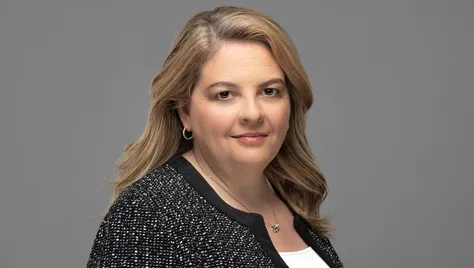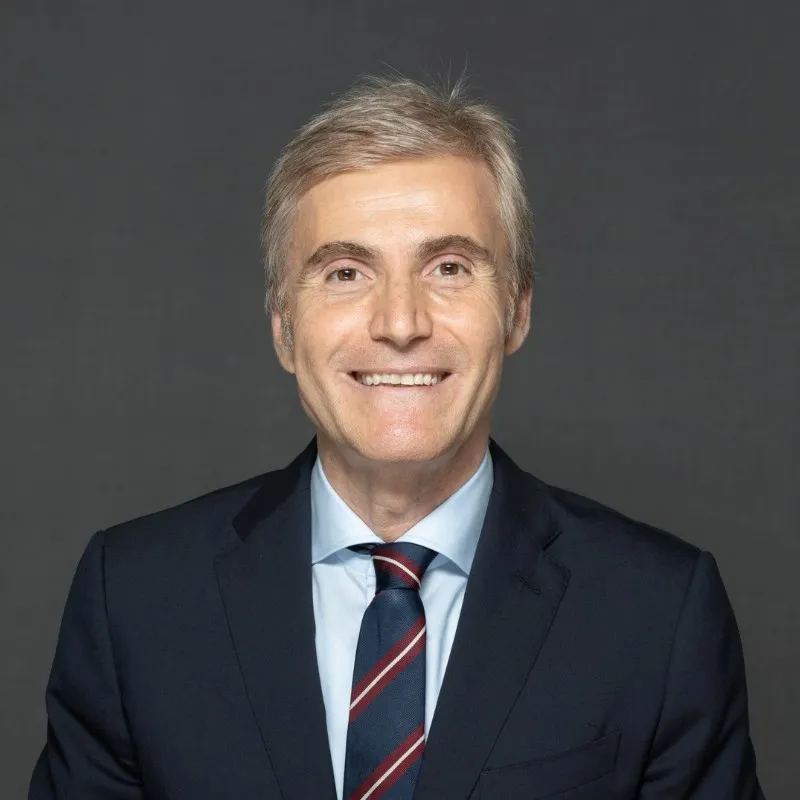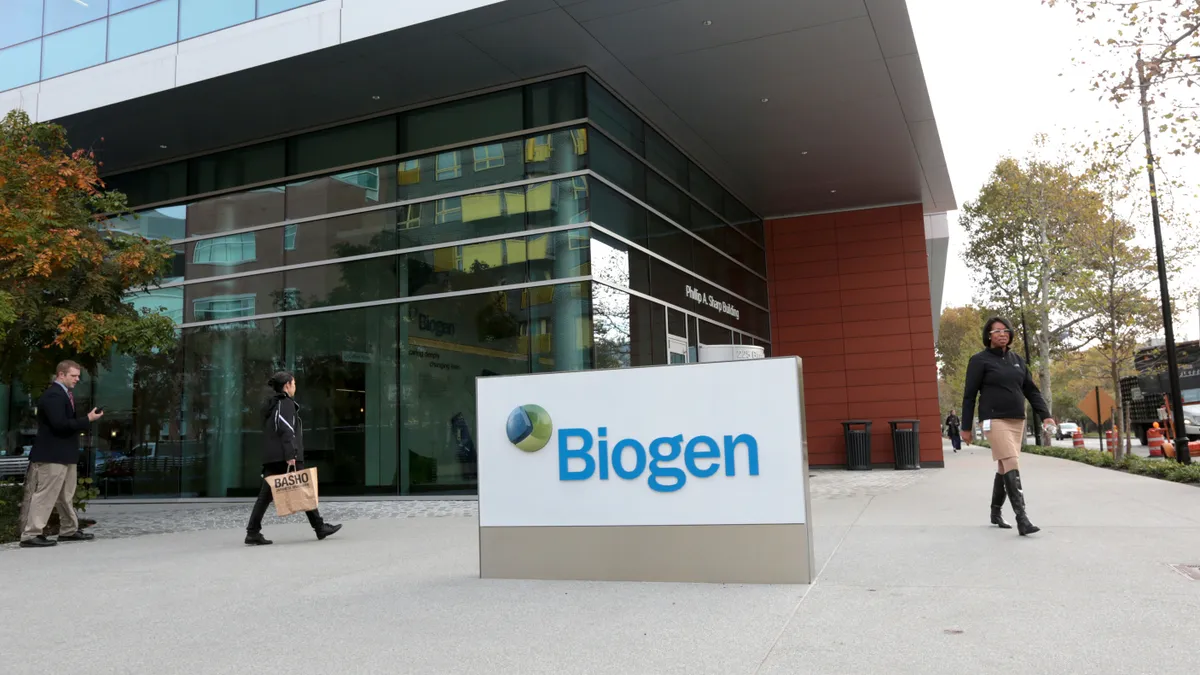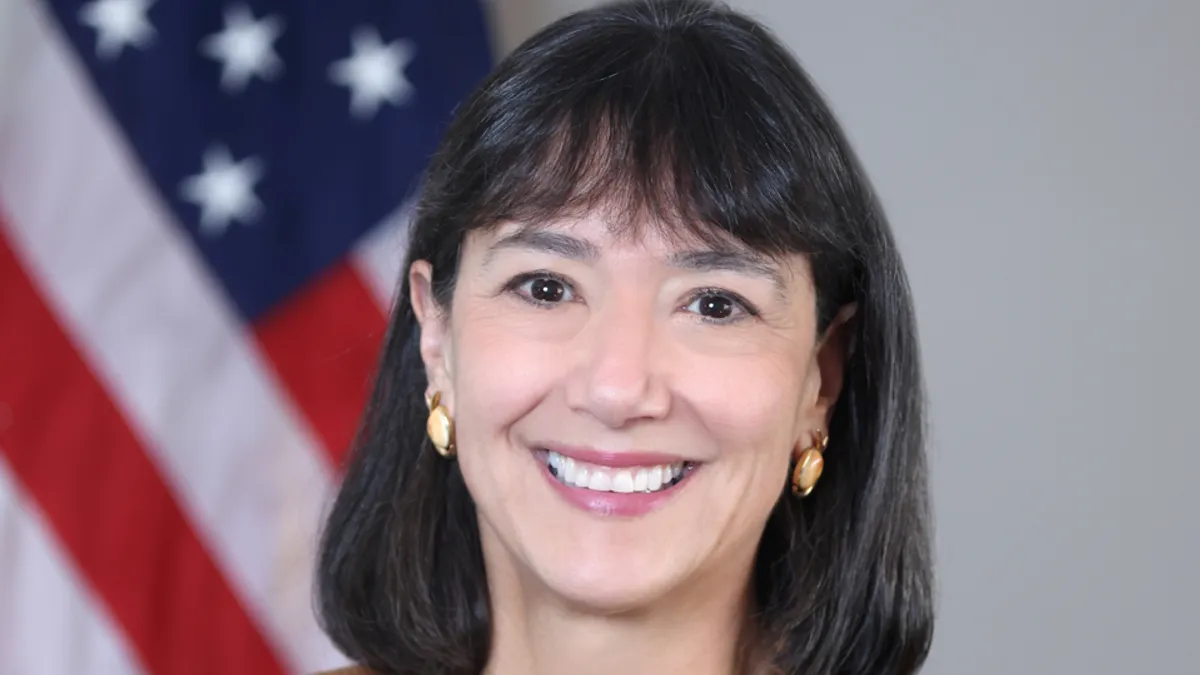Roche names new head of pharma ahead of expected 2023 revenue drop

Who: Teresa Graham, Roche’s current head of global product strategy, will lead the company’s pharmaceutical business upon the resignation of current head Bill Anderson in March. It’s one of the first major C-suite shake-ups at Roche since CEO Severin Schwan announced plans to step down in March and diagnostics chief Dr. Thomas Schinecker was named as his successor.
Background: Graham cut her teeth at Roche’s subsidiary Genentech, where she worked for close to 15 years in commercialization and ultimately rose through the ranks to become vice president of biooncology sales and marketing. She later relocated to Basel, Switzerland in 2019 to head up global product safety at Roche. A member of the Healthcare Businesswomen’s Association’s global board, Graham has worked to improve health equity — particularly for women — and has spoken on numerous panels on the subject.
In a LinkedIn post announcing the promotion Thursday, Graham said: “As my personal leadership journey continues, this period of professional transition is a chance for me to be fueled by the insights and experiences of those around me. Thank you in advance to everyone who will speak up, share with and partner with me as I take on the role of CEO (at) Roche Pharma, so we can help as many patients as possible around the world!”
Why it matters: Graham will take over Roche’s pharma business during what is expected to be an inflection point for the company. On a fourth-quarter and year-end earnings call, the leaders at the pharma giant forecast a revenue decline in 2023, citing concerns that any growth from its hemophilia and multiple sclerosis drugs will not make up for lost profits from its COVID-19 testing devices this year. The company believes it’ll see the strongest growth in its oncology business — despite declining revenue for major cancer medications Herceptin, Rituxan and Avastin —and is also beginning a pivotal phase 2 trial for its Huntington's disease candidate tominersen this spring.
Learn more: Last year, tominersen failed a different study conducted by Roche and partner Ionis Pharmaceuticals after it not only didn’t improve symptoms in Huntington’s patients but also seemed to cause worsening symptoms in some patients. Earlier this year, PharmaVoice looked at where the antisense drug stands in comparison to other emerging treatment options for the rare neurological disorder.
FDA gene therapy head departs amid major overhaul of department structure
Who: Dr. Wilson Bryan, head of the FDA’s Office of Tissues and Advanced Therapies, which oversees the development of gene and cell therapies, is set to retire amid ongoing organizational shifts at the agency.
Background: Bryan joined the FDA in 2000 after a decadelong stint in academia on the neurology faculty at University of Texas Southwestern Medical School. He’s served as director of the Office of Tissues and Advanced Therapies since 2016, helping lead the FDA’s first approvals for cancer-targeting cell therapies and gene therapies for inherited diseases, including five such treatments last year.
Why it matters: In September, the FDA announced plans to augment Bryan’s group into a “super office” renamed the Office of Therapeutic Products to address increasing workloads and “improve functional alignment, increase review capabilities, and enhance expertise on new cell and gene therapies.” As the development of gene and cell therapies has mushroomed over the last few years, the office has faced resource crunches that have led to a backlog of drug reviews. Roughly 2,500 applications are awaiting FDA action, including an accelerated approval application for Sarepta Therapeutics’ Duchenne muscular dystrophy (DMD) candidate and BioMarin’s hemophilia gene therapy. Bryan has been sounding the alarm about growing resource constraints for years. For instance, in a 2021 webinar sponsored by the Alliance for a Stronger FDA, Bryan noted that the department was “swamped” and had faced challenges with hiring new staff because the FDA’s “salaries are not commensurate with the booming cell and gene therapy industry.” Now, in addition to these challenges, the FDA will need to find a leader for the nascent department.
Learn more: PharmaVoice spoke with Sarepta’s chief scientific officer and head of R&D about its one-time treatment for DMD, slated for the accelerated approval review in May, and what it could mean for the treatment landscape.
The family-owned Chiesi Group appoints new CEO as it looks for growth in expanded markets

Who: Giuseppe Accogli, former CEO of the medtech company Baxter, will take the helm of Chiesi Group, an international biopharma company, in April.
Background: Accogli comes to Chiesi with a background steeped in advertising and business sides of the life sciences, with an eye toward the U.S. and EMEA markets. He joined Baxter in 2007, working his way up from director of the company’s renal business to eventually CEO and executive vice president in 2021. Prior to that, he served a stint at Medtronic as marketing director for the EMEA business.
Why it matters: With a strong foothold in Europe, the family-owned Chiesi Group is growing its presence across the globe, particularly in the U.S. And Accogli’s wealth of experience working closely with both the U.S. and EMEA markets over the past two decades could help inform the company’s strategy moving forward.
Chiesi has also recently made moves to diversify its pipeline across therapeutic areas. In 2020, for instance, the company created a global rare disease unit, which now has a presence in more than 20 countries and a pipeline of six treatments approved in various countries for the treatment of thalassemia, sickle cell disease and a range of other disorders.
Learn more: Last year, Giacomo Chiesi, head of the company’s Global Rare Diseases business, was named a PharmaVoice 100 honoree.


























